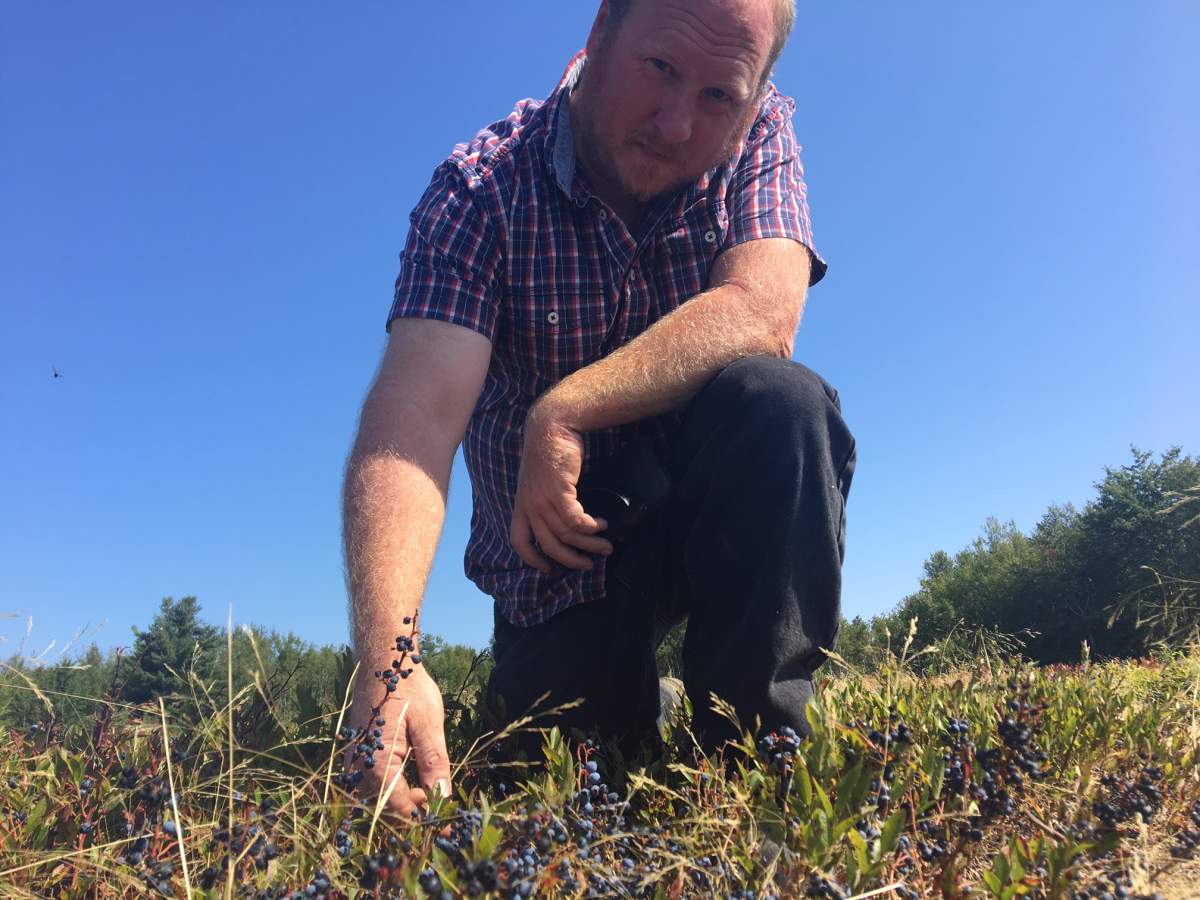It’s been a terrible year for wild blueberry growers in New Brunswick as hot, dry weather and drought-like conditions have lead to crop losses and some farmers in the province are worried they could be driven right out of business.

“One word: devastating,” said Brett Reidpath of Blue Acre Farms in Sainte-Anne.
Reidpath said his crop yield is down 50 per cent this season due to drought. Unable to irrigate his wild blueberry fields, “we held back harvest a week to see if we could get a little rain but it was too little, too late.”
READ MORE: Dwindling bee population a serious issue for N.B. blueberry farmers
The lack of rain meant many of his plants dropped their leaves and the berries shriveled up right in the field.
Meanwhile, he said the berries he is managing to harvest are small and not overly profitable.

Get breaking National news
“Not a lot of sweetness in the berry and overall very, very small.”
He says he won’t even come close to breaking even this year because while yields are down – so are prices.
Reidpath said most growers need about 65 cents a pound to turn a good profit. The price for wild blueberries only set after the harvest, he expects it to be about half that amount.
He said that’s because growers are now seeing a product of their own success. Prior to this season, Reidpath said growers in the province had three unprecedented bumper years in a row. Last year, he said the province produced a record 83 million pounds of wild blueberries.
It was too much for the market to handle and there is now a glut of frozen berries in storage. And with competition from high bush blueberries, Reidpath says it’s driving down prices.
“I think we kinda outgrew the demand a little bit, quite a bit actually,” he said.
READ MORE: A group of home owners in Delta want to see blueberry field cannons gone
According to the New Brunswick Blueberry Growers Association, the low yields and anticipated low pricing is likely to force some of the 200 wild blueberry growers in New Brunswick out of business this year.
Grower Jamie Morrison said he will be able to harvest at least a portion of his fields, but “some of the growers decided not to even harvest because the cost of harvesting and the price you are getting and the cost of your spraying it’s not favourable.”
Reidpath said he’ll likely have to rely on farm credit to pay the bills this year. However, he is remaining hopeful that the lower yields this year may drive up prices for next.
“So hopefully down the road we will see some inventories go down and the price go up,” he said.









Comments